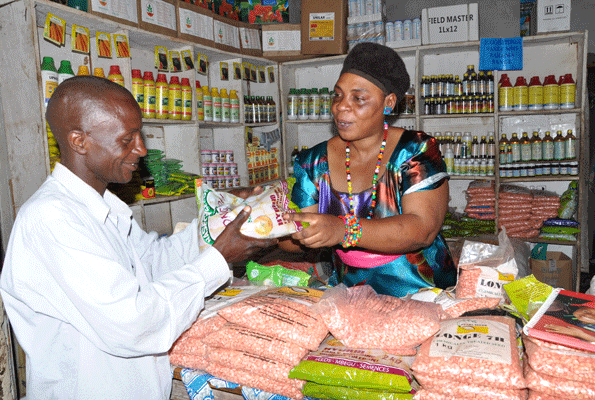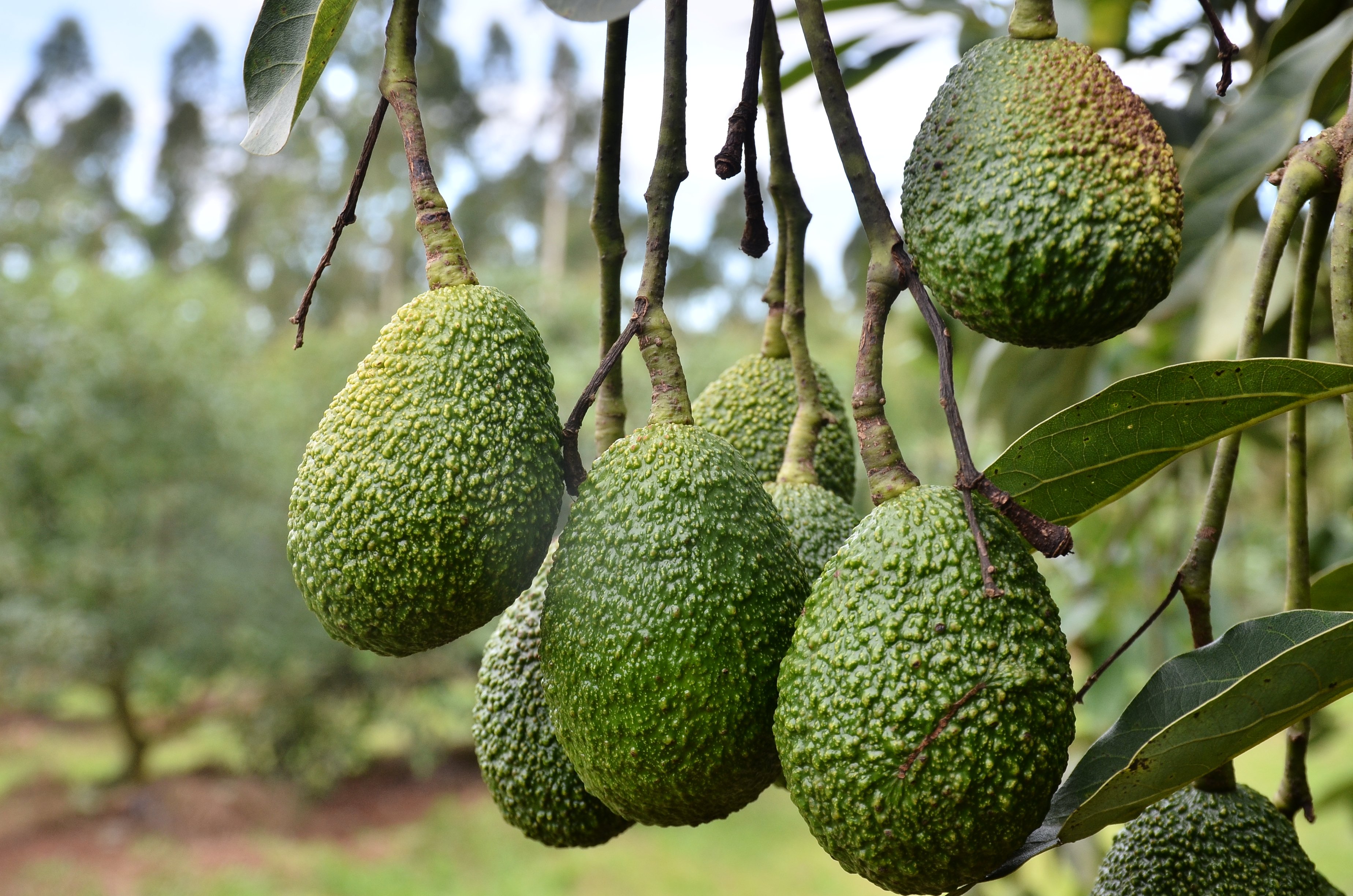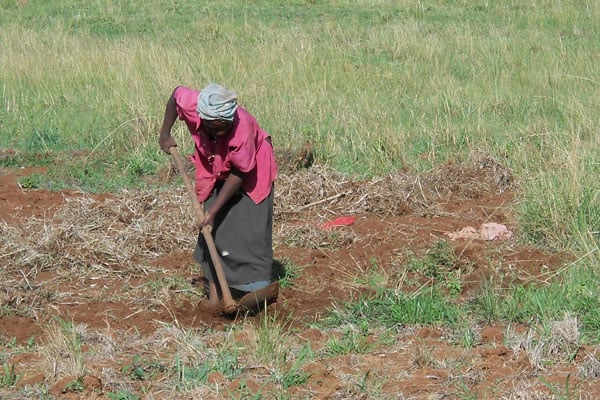Prime
Fake seeds deal locals in Uganda telling blow

A farmer buys genuine certified seeds from an agro-inputs dealer in Iganga. Many farmers claim such seeds are expensive and fall prey to fake seeds, which are cheaper but lead to losses eventually.PHOTO BY CHRISTINE KATENDE
What you need to know:
- Uganda also grapples with the problem of counterfeits.
Every year, Uganda—as per the ombudsman—loses at least Shs9.144 trillion to corruption conduits present in both private and public institutions.
While presiding over this year’s Labour Day celebrations, President Museveni addressed himself to rogue elements bedevilling the taxman. The rogue elements, he further offered, “intercept goods from traders and say ‘I will charge you much if you don’t bribe me’.”
Uganda also grapples with the problem of counterfeits. The travails are what compelled Feed the Future Uganda Inclusive Agricultural Markets (IAM) activity to collaborate with the Anti-Counterfeit Network-Africa (ACN) to organise the campaign dubbed “Fake is Fake” in Mbale City recently.
“The amount of money we lose in counterfeits can be used to finance Uganda’s budget for a full year,” Mr Emmanuel Ocen, the partnership intervention manager at IAM, told Saturday Monitor.
The ACN puts the biblical losses at Shs6 trillion.
An estimate by the World Economic Forum (WEF) shows revenue leakages north of $1.8 billion (Shs195.8 billion).
“You can’t become a modern country with fake products in the market. Your agricultural sector can’t improve if farmers are using fake agro-inputs, fake herbicides, fake fertilisers,” Mr John Rex Achila, the Mbale Resident City Commissioner (RCC) put it bluntly.
Farmers who have suffered as a result of buying counterfeits are numerous in Bugisu Sub-region, which is famed for its arabica coffee.
Mr Richard Jimogo, a coffee and banana farmer in Bumasifwa Sub-county, Sironko District revealed that “leaves fell off” when he used fake fertilisers on his coffee plants last year.
“…the challenge came when the prices of fertilisers increased drastically,” Mr Jimogo says, adding that he had no idea which type of fertiliser it was. “Maybe it was for a different crop but when we put in coffee it was terrible.”
Findings by a 2015 study the Ministry of Agriculture, Animal Industry and Fisheries (MAAIF) did in conjunction with the Economic Policy Research Centre (EPRC) revealed that eight in every ten 50-kg inorganic fertiliser bags on the Ugandan market do not meet the minimum quality standards.
The analysis, which covered all four regions in Uganda, was based on samples from 50kg bags and small one to two-kilogramme packs of commonly-used fertilisers on the market. In the study, a sample was considered non-compliant if found lacking in either moisture content or weight.
“It was observed that 67 percent of samples from importers, 65 percent from unregistered MAAIF retailers, 80 percent of MAAIF registered shops were non-compliant,” the EPRC said, adding that re-packaging of fertilisers to get quantities affordable to individual farmers was cited as the biggest reason for inconsistencies in moisture content.
“Whereas counterfeiting has partly been driven by the enabling consumer appetite for cheap alternative goods and products as compared to the seemingly expensive legitimate goods and products, the activity ultimately ends up harming the consumers and the owners of the legitimate goods and services,” says the Organisation for Economic Co-operation and Development (OECD).
“We can’t leave the fight against counterfeits to farmers in Bulambuli,” he said alluding to one of the districts that form the Elgon region. “We started with a baseline study here in the Elgon and the study revealed a lot of ignorance about counterfeits,” Mr Fred Muwema, the ACN chairman revealed, adding, “We are all ignorant because the study showed no single case was reported to the police. No case went to the ODDP’s office. No case went to the court.”
Mr Collins Apuoyo, IAM’s chief of party, told Monitor thus: “We are interested in driving the change that would lead to fewer counterfeits on the market in Uganda. People have to understand that buying fake goods is not good for the economy of Uganda.”





